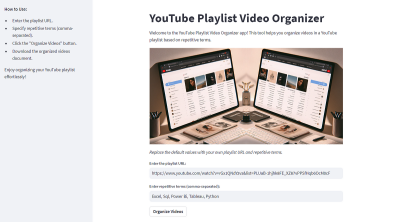1. Introduction
Also Read This: Explore How to Upload Photos to Shutterstock
2. Understand Market Demand
a) Research and analyze popular trends
- Monitor the popular categories and subjects on Shutterstock.
- Study the top-selling images and themes to identify patterns.
- Pay attention to emerging trends and viral content across various platforms.
b) Identify niche markets and underserved areas
- Explore specific industry sectors or themes that have less competition.
- Look for unique and niche subjects that cater to specialized buyer interests.
- Consider targeting regional or cultural-specific content that may be in high demand.
c) Stay up-to-date with current events and seasonal themes
- Keep track of major events, holidays, and cultural celebrations.
- Understand the type of visuals that are relevant and sought after during specific periods.
- Align your content with seasonal trends, such as summer, winter, or festive seasons.
Also Read This: Alamy vs Shutterstock Which Stock Photo Platform Is Better
3. High-Quality Content Creation
a) Invest in top-notch equipment
To capture high-resolution images, invest in a quality camera and lenses that suit your photography style. Having reliable equipment ensures you can produce sharp, clear, and visually appealing content.b) Seek unique perspectives
Instead of capturing generic shots, strive to offer a fresh and distinctive viewpoint. Look for unconventional angles, explore alternative vantage points, and experiment with different depths of field to make your images stand out from the crowd.c) Pay attention to details
Take the time to meticulously compose your shots, ensuring that elements are well-aligned and distractions are minimized. Pay attention to small details like proper exposure, sharpness, and color accuracy to deliver a polished final product.d) Embrace creativity and storytelling
Infuse your work with creativity and tell compelling stories through your images. Seek to evoke emotions, convey narratives, or capture authentic moments that resonate with viewers. A unique and engaging approach will make your portfolio more memorable.e) Show diversity and inclusivity
Aim to represent a wide range of subjects, people, and cultures in your portfolio. Embrace diversity and inclusivity to reflect the global audience and cater to the growing demand for inclusive visuals.f) Edit with precision
Post-processing is a vital step in content creation. Learn how to use professional editing software to enhance your images without overdoing it. Strive for a natural and realistic look while maintaining a consistent editing style throughout your portfolio.By following these tips, you can ensure that your content stands out for its quality, creativity, and ability to resonate with viewers.Also Read This: The Secret Shortcut: How Stock Photos Save Time and Money
4. Keyword Optimization
a) Conduct thorough keyword research
Before uploading your images, spend time researching the keywords that are popular and relevant to your content. Use keyword research tools or explore the Shutterstock search bar to identify commonly searched terms related to your subject matter.b) Use relevant and descriptive keywords
Choose keywords that accurately describe the content and concept of your images. Think about what a potential buyer might search for when looking for similar visuals. Include specific details such as colors, emotions, locations, and subjects to provide precise information.c) Be mindful of language variations
Consider using both singular and plural forms of keywords, as well as variations in language (e.g., British English vs. American English). This helps broaden your reach and ensure your images are discoverable by users with different search preferences.Remember that effective keyword optimization requires a balance between relevance, accuracy, and avoiding excessive repetition. By incorporating strategic keywords into your metadata, you can increase the visibility of your portfolio and attract potential buyers who are searching for content similar to yours.Also Read This: How to Create Eye-Catching Borders for Your Images in GIMP
5. Image Editing and Post-Processing
Image editing and post-processing play a significant role in enhancing the quality and appeal of your photographs. It is essential to refine your images before uploading them to Shutterstock to ensure they meet the platform's high standards and attract potential buyers. Here are some tips for effective image editing and post-processing:a) Use professional editing software
Invest in reliable and feature-rich editing software such as Adobe Photoshop or Lightroom. These tools provide a wide range of editing options and advanced capabilities to enhance your images.b) Enhance colors, contrast, and sharpness
Adjust the colors of your images to make them vibrant and visually appealing. Play with contrast and tonal adjustments to add depth and dimension to your photographs. Sharpen your images selectively to enhance details without creating artifacts.c) Remove distractions and imperfections
Carefully examine your images for any distractions or unwanted elements that might detract from the main subject. Use tools like spot healing, clone stamp, or content-aware fill to remove blemishes, sensor dust, or any other imperfections.d) Maintain a consistent editing style
Developing a distinct editing style helps create a cohesive look across your portfolio, making it easily recognizable to buyers. Experiment with different editing techniques and presets to find a style that aligns with your artistic vision.e) Preserve the integrity of the original image
While post-processing can significantly enhance your photographs, it is crucial to maintain the integrity of the original image. Avoid excessive editing that alters the authenticity and natural appearance of your subjects.f) Consider special effects sparingly
Adding special effects like vignettes, filters, or creative overlays can be a way to add a unique touch to your images. However, use these effects judiciously to avoid overdoing and compromising the overall quality of your photographs.g) Save images in the appropriate format
When saving your edited images, ensure they are in the correct file format and resolution required by Shutterstock. Typically, JPEG is the preferred format for photographs, while maintaining a high-quality resolution suitable for printing purposes.h) Keep backups of your original files
It's crucial to maintain a backup of your original, unedited image files. This ensures that you can revert to the original if needed and provides flexibility for future editing or different usage requirements.By paying attention to image editing and post-processing, you can enhance the visual appeal of your photographs and make them more marketable on Shutterstock.Also Read This: How to Use Getty Images for Licensing and Usage Rights as a Beginner
6. Metadata and Descriptions
Metadata and descriptions are vital components of your content on Shutterstock. They provide crucial information about your images, helping potential buyers discover and understand your work. By optimizing your metadata and crafting effective descriptions, you can increase the visibility and appeal of your portfolio. Here are some tips for optimizing metadata and descriptions:a) Craft compelling titles
Create concise and descriptive titles that capture the essence of your image. Include relevant keywords that accurately represent the subject matter, style, and concept of your photograph. Titles should be attention-grabbing and informative.b) Write detailed and accurate descriptions
Your image descriptions should provide additional context and information about the image. Describe the key elements, emotions, or story behind the photograph. Use clear and concise language, avoiding overly technical terms that may confuse potential buyers.c) Include specific details
Provide specific details about your image, such as the location, time of day, or unique characteristics. Specifics help potential buyers find exactly what they're looking for and can increase the relevance of your images in search results.d) Consider multilingual and regional variations
If your content has global appeal, consider translating your titles and descriptions into multiple languages or tailoring them to specific regions. This helps cater to a broader audience and increases the chances of your images being discovered by buyers worldwide.e) Regularly review and update metadata
Stay proactive and review the performance of your images regularly. Analyze which keywords and descriptions are driving visibility and sales. Adjust and update your metadata accordingly to align with current market trends and buyer preferences.Remember that accurate and well-optimized metadata and descriptions can significantly impact the discoverability and attractiveness of your images on Shutterstock.Also Read This: how to turn image into link
7. Regular Uploads and Diverse Content
Consistency and diversity are key factors in building a successful portfolio on Shutterstock. By regularly uploading new content and offering a diverse range of subjects, styles, and concepts, you can attract a wider audience and cater to the varied needs of buyers. Here are some tips for maintaining regular uploads and incorporating diverse content:a) Establish a schedule
Set a realistic and manageable schedule for uploading new content to your portfolio. Consistency is crucial, as it keeps your portfolio fresh and encourages return visits from potential buyers. Whether it's weekly, bi-weekly, or monthly, create a schedule that works for you and stick to it.b) Explore different formats
In addition to photographs, consider incorporating other formats into your portfolio, such as illustrations, vectors, or videos. Offering a mix of content types expands your reach and attracts buyers who may be searching for specific formats.c) Embrace trending topics and seasonal themes
Stay informed about current trends, events, and seasonal themes. Incorporate these into your content creation strategy to capitalize on the increased demand for relevant visuals. Aligning your work with popular topics can boost the visibility and appeal of your portfolio.d) Experiment and push creative boundaries
Don't be afraid to step out of your comfort zone and experiment with new styles, techniques, or subject matters. Continually challenging yourself and pushing creative boundaries helps you grow as an artist and keeps your portfolio fresh and engaging.e) Maintain quality standards
While it's essential to regularly upload new content, never compromise on quality. Prioritize delivering high-quality, well-executed visuals that meet Shutterstock's guidelines. Consistently providing top-notch content enhances your reputation as a reliable and skilled contributor.Regularly uploading diverse and high-quality content not only attracts a wider audience but also increases your chances of discovering new buyers and generating more sales.Also Read This: How to Create Stunning Black and White Photos
8. Engage with the Shutterstock Community
Engaging with the Shutterstock community can provide valuable opportunities for learning, networking, and collaboration. By actively participating in forums, seeking feedback, and connecting with other contributors, you can gain insights, improve your skills, and expand your reach on the platform. Here are some tips for effectively engaging with the Shutterstock community:a) Learn from successful contributors
Pay attention to the work of successful contributors on Shutterstock. Study their portfolios, analyze their techniques, and understand what makes their content appealing to buyers. Take inspiration from their success and apply relevant strategies to your own work.b) Share knowledge and experiences
Contribute to the community by sharing your own knowledge and experiences. Write informative blog posts, tutorials, or articles related to photography, image editing, or the stock industry. Sharing valuable insights establishes you as an authority and can attract attention to your portfolio.c) Attend workshops and events
Look out for workshops, webinars, or events organized by Shutterstock or other industry professionals. These events provide opportunities to learn new skills, gain industry knowledge, and network with fellow contributors and experts.d) Be respectful and supportive
When engaging with the Shutterstock community, maintain a respectful and supportive attitude towards others. Offer assistance, provide positive feedback, and celebrate the success of fellow contributors. Building positive relationships within the community can lead to future collaborations and increased visibility.By actively participating, sharing knowledge, and connecting with others, you can enhance your skills, gain exposure, and establish a strong presence within the community.Also Read This: Download YouTube Videos as MP3s for Offline Listening
9. Promotion and Marketing
a) Utilize social media platforms
- Establish a strong presence on social media platforms like Instagram, Facebook, and Twitter.
- Share your best images regularly, accompanied by engaging captions and relevant hashtags.
- Interact with your audience, respond to comments, and engage with other artists and photographers.
b) Build a professional website or portfolio
- Create a dedicated website or portfolio showcasing your best work.
- Optimize your website for search engines to increase its discoverability.
- Include links to your Shutterstock portfolio for easy access and licensing options.
c) Collaborate with influencers and bloggers
- Identify influencers and bloggers in your niche who may be interested in your work.
- Offer to provide them with high-quality images in exchange for exposure or a feature.
- Collaborating with influencers can expand your reach and attract new buyers.
d) Leverage email marketing
- Build an email list of interested subscribers who want updates about your work.
- Send regular newsletters featuring your latest images, updates, and promotions.
- Provide easy licensing options and encourage recipients to share your work with others.
e) Participate in photography competitions and exhibitions
- Enter reputable photography competitions to gain exposure and recognition.
- Submit your work for exhibitions or consider organizing your own exhibitions.
- Winning awards or being featured in exhibitions can boost your portfolio's credibility.
f) Network with industry professionals
- Attend industry events, conferences, or photography meetups.
- Connect with art directors, editors, or creative agencies in your field.
- Establish relationships and collaborate with professionals who can help promote your work.
g) Optimize your Shutterstock portfolio
- Regularly review and update your portfolio with fresh, high-quality content.
- Use accurate titles, relevant keywords, and detailed descriptions for each image.
- Continuously monitor and adjust your portfolio based on market trends and customer feedback.
Remember to be consistent in your promotional efforts and adapt your strategies based on the results you see. Building a strong online presence, leveraging social media, and actively marketing your portfolio will help increase its visibility, attract more buyers, and ultimately boost your success on Shutterstock.#ART #DESIGNER #SHUTTERSTOCK #Video #PROMOTIONS Video marketing. Approaches, methods and measures to promote products and services based on video. For web construction, mobile applications, banners, corporate brochures, book covers, layouts etc. https://t.co/S2ITux59ct pic.twitter.com/NhX1TtmiTT
— Oleg (@nowolegg) December 3, 2018

 admin
admin








